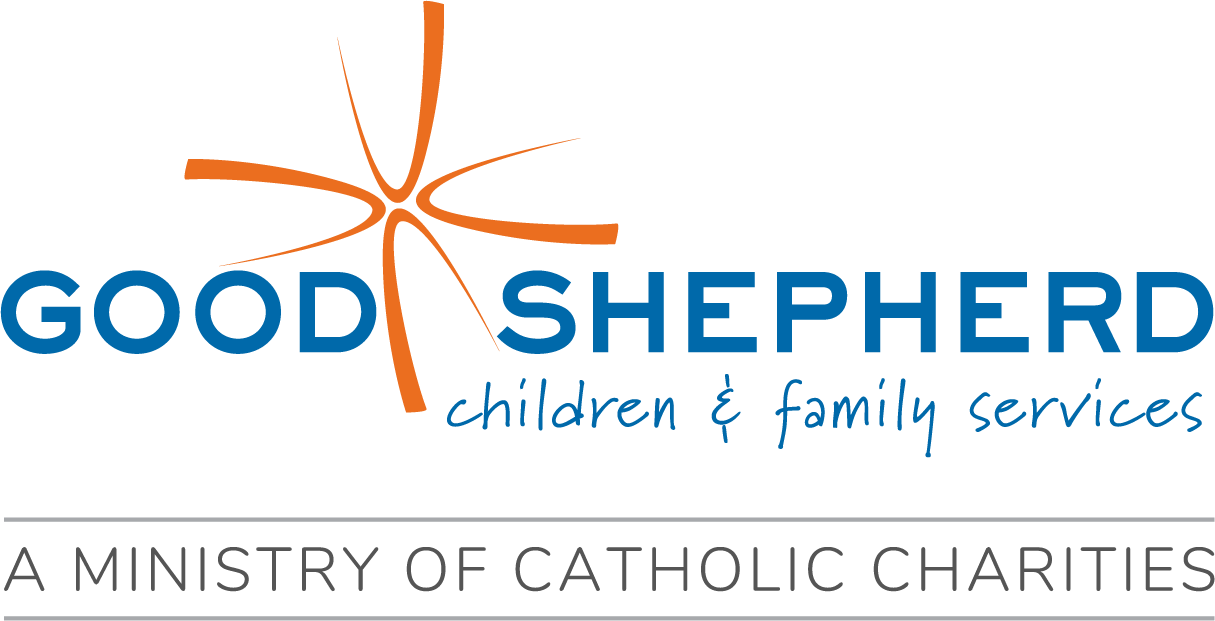“We came in knowing this might possible be the hardest thing we ever do in our lives, and we might hate our lives for a while, but we’re going to do it, because this is something we feel is really important. We want to do something that benefits society, that benefits the community. We definitely feel like it takes a village to raise a child, and it does”.
In light of National Foster Care Month, I had the opportunity to sit down with one of our rock star foster families at Good Shepherd. Juan and Dessa had come recommended by their licensing worker, Sandra, who supports the family, answers questions, and is a resource for foster parents.
Juan and Dessa are a young couple who live just outside of the city of St. Louis. After moving to St. Louis in early 2016, they bought a house, and intended to fill it with foster kids. Dessa had always wanted to be a foster parent, a desire brought about by volunteer work at a crisis nursery while she was in high school. “I realized that there were these kids that didn’t have homes and needed temporary care. That was my first experience where I realized that I would like to foster and eventually adopt kids.” For Juan, he hadn’t wanted to adopt or foster until he met Dessa.
For Juan, foster care and adoption was almost foreign growing up. He hadn’t thought about being a foster or adoptive parent until he met Dessa, and as their relationship grew and he learned more about foster care, he began to be open to the idea. Juan was raised Catholic, and his faith has influenced his decision to be a foster parent. He described how learning Church teachings as a child and practicing compassion and charity has shaped him as an adult, “Part of that teaching growing up, helping others, I started to think and through conversations with Dessa, I learned there are kids out here already in this world who don’t have parents. Why not be parents to them?”
After making the decision to become foster parents, they reached out to a local foster care agency, and became licensed through Good Shepherd in June of 2016. In early July, they received their first placement: a 13 year old girl who was the oldest of a sibling group of seven.
Juan vividly remembers the first day their kids joined them in their home. “We were really excited about having kids in our home, helping them out. I remember our first placement, when she came over, the first thing that we did, we sat on our steps in our front yard, we could see that she was a mix of different emotions. She was frightened, uncertain, but at the same time we did sense some openness to be with us, we felt a little bit of a connection because we had met them before.”
Her brother joined them a few days later, then two sisters. By the middle of July, the family had gone from zero kids to four, in just a matter of weeks. Dessa recalls the experience “it was pretty intense, but it was fun at the same time, because these kids had been in separate foster homes before. They were really excited to be in the same home and to have that future ahead of them, that they weren’t going to be separated anymore. They hadn’t consistently seen each other for the past three months since they had been in care. They were excited about the possibility”. In the last ten months since Juan and Dessa have been foster parents, they have since taken placement of one more sibling of the group, bringing their family up to five kids. The girls are ages 13, 9, and 8, and the boys are now 7 and 5. The family also has two younger siblings that are in a different foster home.
Since becoming foster parents, Juan and Dessa have been able to better realize some of the unique challenges that foster parenting brings to a family. As first time foster parents without any biological children, they said that they had no idea what to expect at first. They were initially faced with intense situations and felt underprepared for dealing with trauma. “In the beginning, we had no idea. And that’s what every foster parent says.”, Dessa recalls. Dessa and Juan were committed to caring for the kids in their home, no matter what. “We said we’re not going to give up on these kids, we’re going to find the best situation for them, and we’re still trying to do that”.
Though the challenges of trauma can be intense and trying for every foster parent, foster care is not without happiness and triumph. Juan and Dessa described the little moments they’ve seen over the past ten months, of seeing how the kids’ behaviors were when they first came into their home versus now. Along with seeing the children’s behavior change as they heal, foster care also brings the joy of parenting. Juan describes a moment from last fall, when all of the kids were enrolled in soccer. They went to every game, and in this particular game, their youngest at the time, their 8 year old girl, was playing one of her last games of the season. “She made her first goal, and the look in her face, she looked around all of the audience looking for me. And she saw me and she just raised her hands and jumped up and down and just seeing that, I just wanted to run out on the field and pick her up. But I held back, because I didn’t want to look like this crazy dad whose child scores a goal and goes out on the field, it was like she won the World Cup or something.”
Juan and Dessa realize that foster parenting is not for everyone and how hard it can be to care for kids that come from trauma. “Most of these kids come from really hard places, and they just need unconditional love. And they need commitment. It’s hard. I think knowing the realities of what foster care is, and where these kids come from before they get into it is really important”. For those thinking about foster care, Juan and Dessa stress the importance of being realistic about their expectations as a foster parent and having a strong support system in place that they can reach out to. “It’s hard to ask for help. But we do it almost every day and we don’t regret doing it and nobody makes us feel bad about asking for help because we’re doing it for the right reasons. And we can’t do it alone”.
For those interested in helping out kids and families in foster care but aren’t able to be foster parents, Juan and Dessa urge people to get educated and see how they can support foster care in other ways. Juan recommends learning about what the kids go through, what they experience, and what the foster care process is like for them, as well as learning what it’s like for the parents. They also spoke about becoming a respite provider, or a short term babysitter for foster families. “If there was more of a network for people who have considered fostering or would want to help foster parents or children, I think that would be a great way to get educated about different ways where they can help. It doesn’t mean they have to foster the kids, but they can help the kids through foster parents”, said Juan.
To learn more about becoming a foster parent or a respite provider, please visit www.goodshepherdstl.org/foster. Thank you, Juan and Dessa, for caring for kids in need!

 Get Help Now
Get Help Now








